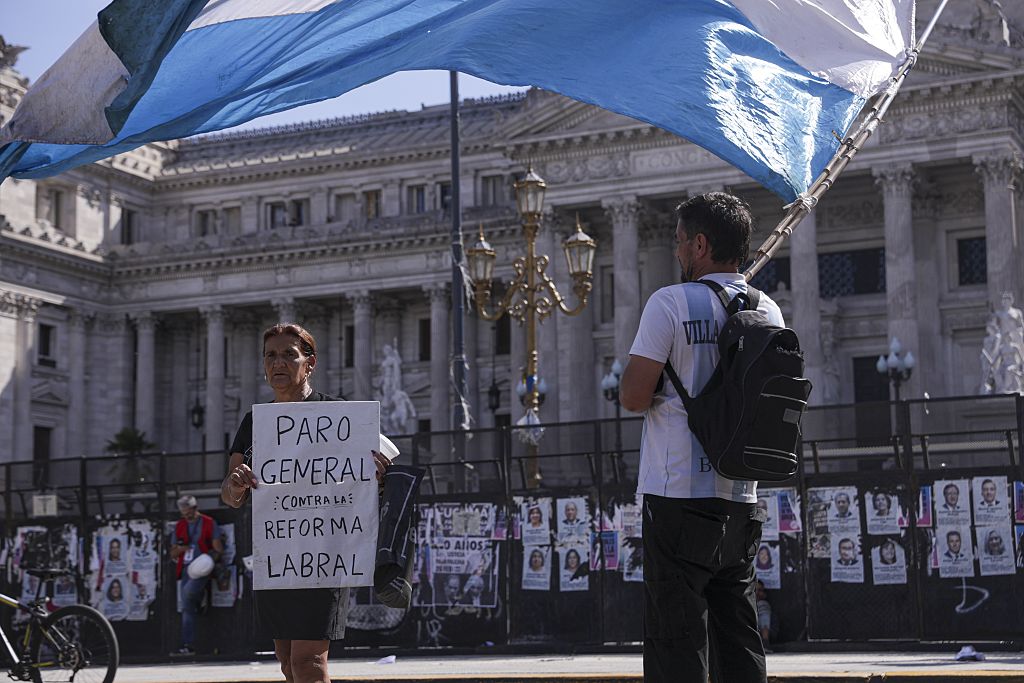Ecuador Update: The Constitutional Reform Controversy
Ecuador Update: The Constitutional Reform Controversy
Ecuador is in the midst of a controversial constitutional reform expected to be voted on October 2008. But recent regional tensions with Colombia, a government takeover of several media outlets, and a ministerial shake-up have decreased popular support to approve the measure.
Months after the Colombian special forces raid on a rebel camp located just inside the Ecuadorian border, relations between the two countries remain at a low point. Even the restoration of diplomatic ties between Colombia and Venezuela has yet to spark a similar rapprochement. For example, while President Álvaro Uribe and the Colombian military received worldwide praise after the flawless hostage rescue in early July, in Ecuador, President Correa criticized the mission in his Saturday radio interview. Acknowledging deterioration in its foreign standing, Ecuador recently announced a new campaign to improve its image in Washington and dispel rumors of close ties with the Revolutionary Armed Forces of Colombia (FARC).
At the same time that Ecuadorian-Colombian relations continue to face challenges, President Uribe and Venezuelan President Hugo Chávez have started to see new opportunities for dialogue. Ideological differences were recently put aside to re-establish normal trade and security relations, a necessary step for countries with bilateral trade exceeding $6 billion last year. Other initiatives include the potential construction of shared railroad lines and the launching of joint initiatives between the state oil companies of each country, PDVSA and Ecopetrol.
In July, the Ecuadorian government ordered the seizure of 195 companies owned by Grupo Isaías, including a sugar mill, businesses in the insurance, real estate and construction sectors, and three TV stations. The anti-government media outlets accounted for 40 percent of the nightly news audience. The government’s decision comes in light of a 10-year pending trial against the Isaías brothers, former owners of Filanbanco. Previously Ecuador’s largest bank, Filanbanco is accused of committing fraud during the late 1990s financial crisis and of owing $661 million to the state Deposit Guarantee Agency (AGD).
The takeover has sparked mixed feelings among Ecuadorians. Some, especially those who lost money during the financial crisis, applauded the decision; while others, in particular the private sector, strongly disagreed with the action. Critics claim that the impetus for the government’s move was to shore up popular support in the run up to the constitutional referendum and in response to lowered presidential approval ratings.
The takeover of TV and radio stations also sparked a change in the presidential cabinet. Finance Minister Fausto Ortiz, in office for just one year, stepped down due to his disagreement with the government’s decision. His replacement is Wilma Salgado, the former head of Ecuador's Deposit Guarantee Agency, which was responsible for taking over the Isaías Group businesses. Her appointment has raised concerns with some investors due to past claims that debt obligations for poor countries should be cancelled—a far cry from the market-friendly Ortiz and his constant reassurance that Ecuador will continue to pay its debt.
This is all happening in the midst of preparations for a vote on the country’s new draft constitution. The new document—to be finalized by the end of July—will include more than 500 articles, including new clauses such as expansion of the voting age. If the constitution is approved in October, all Ecuadorians age 16 and older will be able to vote, but suffrage will be voluntary for those under 18. Voluntary voting would also be extended to the Ecuadorian Diaspora, which currently faces fines for failing to participate in elections. The new constitution also recognizes the right for Ecuadorians living abroad to vote for president, vice president, and other national representatives, as well as participate in referendums and run for public office.
Other provisions include bestowing the president with the authority to dissolve Congress during times of political commotion or when it has performed functions beyond its scope or has repeatedly interfered with the execution of the National Plan for Development. Based on this article and other new articles, President Correa could potentially remain in power until 2017.
As of now, approval of the new constitution faces an uphill battle. The most recent poll released by Cedatos-Gallup reports that only 32 percent of Ecuadorians would vote in favor of the new Constitution, well below the 50 percent threshold required for ratification.








